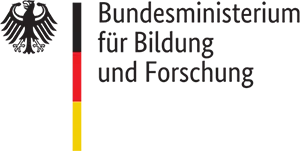
- This event has passed.
Table ronde publique: L’impact des femmes académiques dans l’environnement universitaire en Afrique/ Public Roundtable: The impact of academic women in the higher education contexts in Africa
July 17 @ 9:45 am – 12:00 pm

Zoom : https://maxweberstiftung.zoom-x.de/j/68524622605
Langue : français ; en ligne avec traduction en anglais
Cette table ronde publique a lieu dans le cadre du huitième atelier sur les carrières universitaires féminines en Afrique, organisé par le Merian Institute for Advanced Studies in Africa (MIASA) en collaboration avec l’Institut historique allemand de Paris (IHA), le Centre Marc Bloch Berlin (CMB), la Fondation Heinrich Böll Sénégal (HBS), l’Université Cheikh Anta Diop (UCAD) et l’Université du Ghana, Legon. La table ronde aura lieu à Dakar (en français) et sera également transmis en ligne via zoom (sur zoom avec traduction en anglais).
La table ronde porte sur les possibilités d’accroître et de promouvoir le leadership académique des femmes dans les universités africaines. (i) Tout d’abord, les intervenantes partagent des réflexions comment construire un parcours universitaire dans le milieu universitaire en Afrique. Quels sont les différents défis que confrontent les femmes dans l’environnement universitaire ? Quels sont les défis structurels qui caractérisent l’environnement universitaire, et comment créer une balance entre différentes exigences professionnelles, sociales, et familiales ? (ii) Ensuite, la table ronde aborde la question comment les femmes académiques dans des université africaines peuvent-elles affirmer et agrandir de l’influence dans les institutions de décisions universitaires et acquérir de positions de pouvoir. Vue que les femmes sont souvent en minorité dans les institutions universitaires africaines, cette situation ne représente-elle pas un obstacle majeur dans la compétition des (s)élections souvent dominées par des hommes ? Comment s’adresser ce défi ? (iii) Enfin, la table ronde demande comment accroitre non seulement la visibilité, mais aussi la solidarité entre universitaires dans le milieu académique en Afrique. Comment créer un impact, être entendu et aperçu, tout en appuyant aussi d’autres collègues ? Comment crée, ensemble avec femmes et hommes, un environnement universitaire plus inclusif et équilibré dans des universités africaines.
Intervenantes :
- Dr. Sadio Ba Gning, Université Gaston Berger, Saint Louis (Sénégal)
- Prof. Benedicta Adokarley Lomotey, Université de Ghana, Legon (Ghana)
- Prof. Yvette Onibon Doubogan, Université de Parakou, Parakou (Benin)
Modération :
- Dr. Awa Diop, IIFAN, Dakar
MC :
- Dr. Susann Baller, CMB Berlin
Avec de mots de bienvenue de Prof. Grace Diabah (MIASA, Université de Ghana) et Dr. Barrel Guèye (UCAD, Dakar)
Organisatrices : Dr. Susann Baller (CMB), Prof. Grace Diabah (MIASA, UG), Dr. Awa Diop (HBS), Dr. Barrel Guèye (UCAD), Hannah Tulay (IHA), Aissatou Seck (UCAD)
Zoom: https://maxweberstiftung.zoom-x.de/j/68524622605
Language : French ; online : with English translation
This public roundtable is hosted as part of the eighth workshop on women’s academic careers in Africa, hosted by the Merian Institute for Advanced Studies in Africa (MIASA) in collaboration with the German Historical Institute in Paris (IHA), the Marc Bloch Centre Berlin (CMB), the Heinrich Böll Foundation Senegal (HBS), the University Cheikh Anta Diop (UCAD) and the University of Ghana, Legon. The round table will take place in Dakar (in French) and will also be transmitted online via zoom (on zoom with English translation).
The round table examines how to increase and promote women’s academic leadership in African universities. (i) First of all, the speakers share their thoughts on how to build an academic career in African higher education contexts. What are the different challenges which women face? What are the structural challenges that characterise the professional environment at African universities, and how can a balance be created between different professional, social and family responsibilities? (ii) Secondly, the round table addresses the question of how women academics can assert and increase their influence in university decision-making institutions and acquire positions of power in African academic environments. Given that women are often in the minority in academic institutions, does this not represent a major obstacle in the competition for (s)elections that are often dominated by men? How can this challenge be addressed? (iii) Finally, the round table asks how to increase not only visibility, but also solidarity among scholars at African universities. How can female scholars make an impact, be heard and seen, while also supporting other colleagues? How to create, together with women and men, a more inclusive and balanced university environment.
Speakers:
- Dr. Sadio Ba Gning, Université Gaston Berger, Saint Louis (Sénégal)
- Prof. Benedicta Adokarley Lomotey, Université de Ghana, Legon (Ghana)
- Prof. Yvette Onibon Doubogan, Université de Parakou, Parakou (Benin)
Panel Chair:
- Dr. Awa Diop, IFAN, Dakar
MC:
- Dr. Susann Baller, CMB, Berlin
With welcome notes by Prof. Grace Diabah (MIASA, University of Ghana) and Dr. Barrel Guèye (UCAD, Dakar)Organising team: Dr. Susann Baller (CMB), Prof. Grace Diabah (MIASA, UG), Dr. Awa Diop (HBS), Dr. Barrel Guèye (UCAD), Hannah Tulay (IHA), Aissatou Seck (UCAD)



